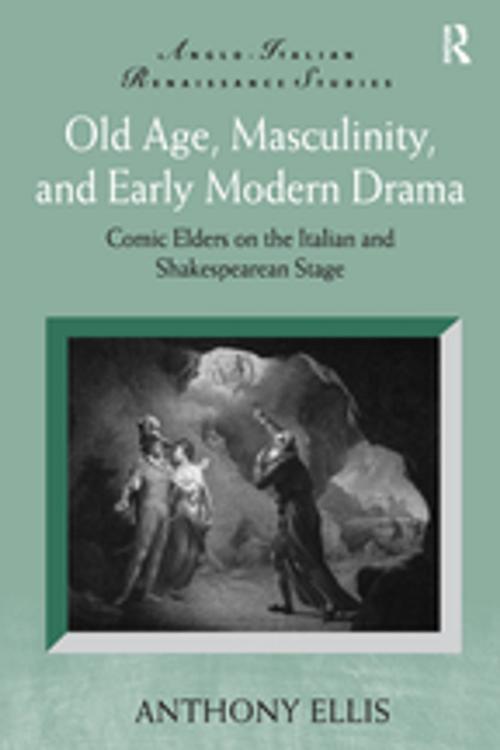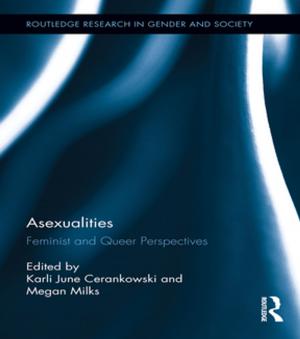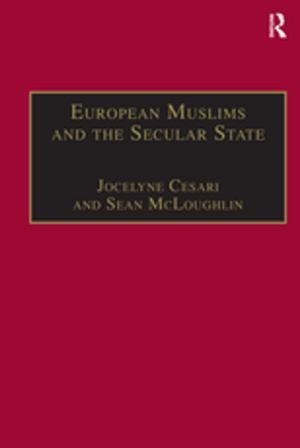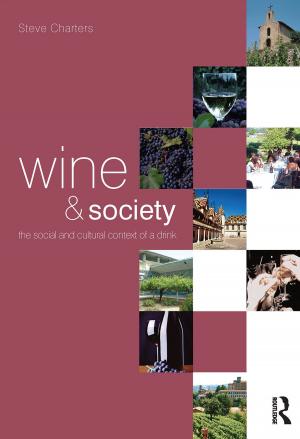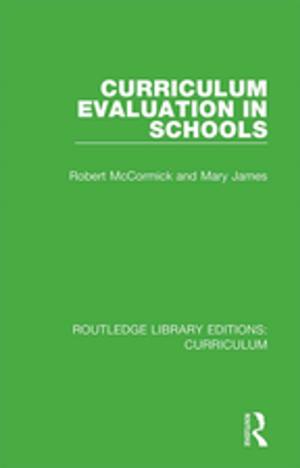Old Age, Masculinity, and Early Modern Drama
Comic Elders on the Italian and Shakespearean Stage
Fiction & Literature, Literary Theory & Criticism| Author: | Anthony Ellis | ISBN: | 9781351914024 |
| Publisher: | Taylor and Francis | Publication: | December 5, 2016 |
| Imprint: | Routledge | Language: | English |
| Author: | Anthony Ellis |
| ISBN: | 9781351914024 |
| Publisher: | Taylor and Francis |
| Publication: | December 5, 2016 |
| Imprint: | Routledge |
| Language: | English |
This first book-length study to trace the evolution of the comic old man in Italian and English Renaissance comedy shows how English dramatists adopted and reimagined an Italian model to reflect native concerns about and attitudes toward growing old. Anthony Ellis provides an in-depth study of the comic old man in the erudite comedy of sixteenth-century Florence; the character's parallel development in early modern Venice, including the commedia dell'arte; and, along with a consideration of Anglo-Italian intertextuality, the character's subsequent flourishing on the Elizabethan and Jacobean stage. In outlining the character's development, Ellis identifies and describes the physical and behavioral characteristics of the comic old man and situates these traits within early modern society by considering prevailing medical theories, sexual myths, and intergenerational conflict over political and economic circumstances. The plays examined include Italian dramas by Bernardo Dovizi da Bibbiena, Niccolò Machiavelli, Donato Giannotti, Lorenzino de' Medici, Andrea Calmo, and Flaminio Scala, and English works by William Shakespeare, Ben Jonson, and Thomas Dekker, along with Middleton, Rowley, and Heywood's The Old Law. Besides providing insight into stage representations of aging, this book illuminates how early modern people conceived of and responded to the experience of growing old and its social, economic, and physical challenges.
This first book-length study to trace the evolution of the comic old man in Italian and English Renaissance comedy shows how English dramatists adopted and reimagined an Italian model to reflect native concerns about and attitudes toward growing old. Anthony Ellis provides an in-depth study of the comic old man in the erudite comedy of sixteenth-century Florence; the character's parallel development in early modern Venice, including the commedia dell'arte; and, along with a consideration of Anglo-Italian intertextuality, the character's subsequent flourishing on the Elizabethan and Jacobean stage. In outlining the character's development, Ellis identifies and describes the physical and behavioral characteristics of the comic old man and situates these traits within early modern society by considering prevailing medical theories, sexual myths, and intergenerational conflict over political and economic circumstances. The plays examined include Italian dramas by Bernardo Dovizi da Bibbiena, Niccolò Machiavelli, Donato Giannotti, Lorenzino de' Medici, Andrea Calmo, and Flaminio Scala, and English works by William Shakespeare, Ben Jonson, and Thomas Dekker, along with Middleton, Rowley, and Heywood's The Old Law. Besides providing insight into stage representations of aging, this book illuminates how early modern people conceived of and responded to the experience of growing old and its social, economic, and physical challenges.
